Stacking The Deck with Root Shock
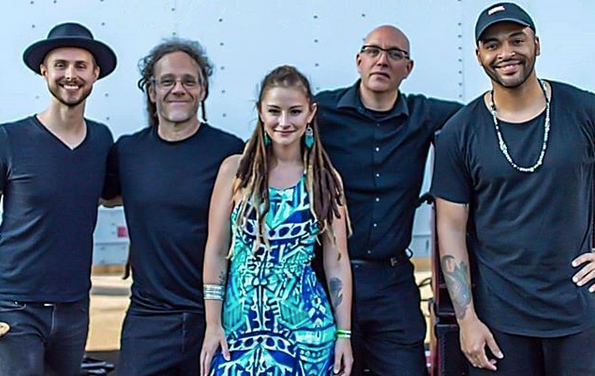
Stacking The Deck is a feature exclusive to Adam’s World where I bring packs of 1991 Pro Set Superstars MusiCards to artists, and we discuss who they find in each pack.
A reggae band, a soul band, and a rock band all rolled into one, the music of Root Shock will make you groove, think, and love.
The Syracuse, NY-based five piece consisting of (photographed left to right) Phil Grajko (guitars/vocals), Brian Lauri (keys), Jessica Brown (vocals/melodica), Bill Eppel (bass), and Tyre Outerbridge (drums), have become known for their dynamic live performances that create both a warm, and extraordinarily fun, vibe.
If that’s a type of vibe you’re interested in experiencing, you’re in luck, because the band says they’ll be on the road for a large portion of the year, while also working on recording a new full length album.
I caught up with Root Shock before their recent show at The Acoustic, in Bridgeport, CT, to open up some packs of MusiCards, and the artists we found sparked conversations about the vast musical histories of the members of the band, what sparked their initial interest in music, and the article of clothing that is not in Jessica’s closet.
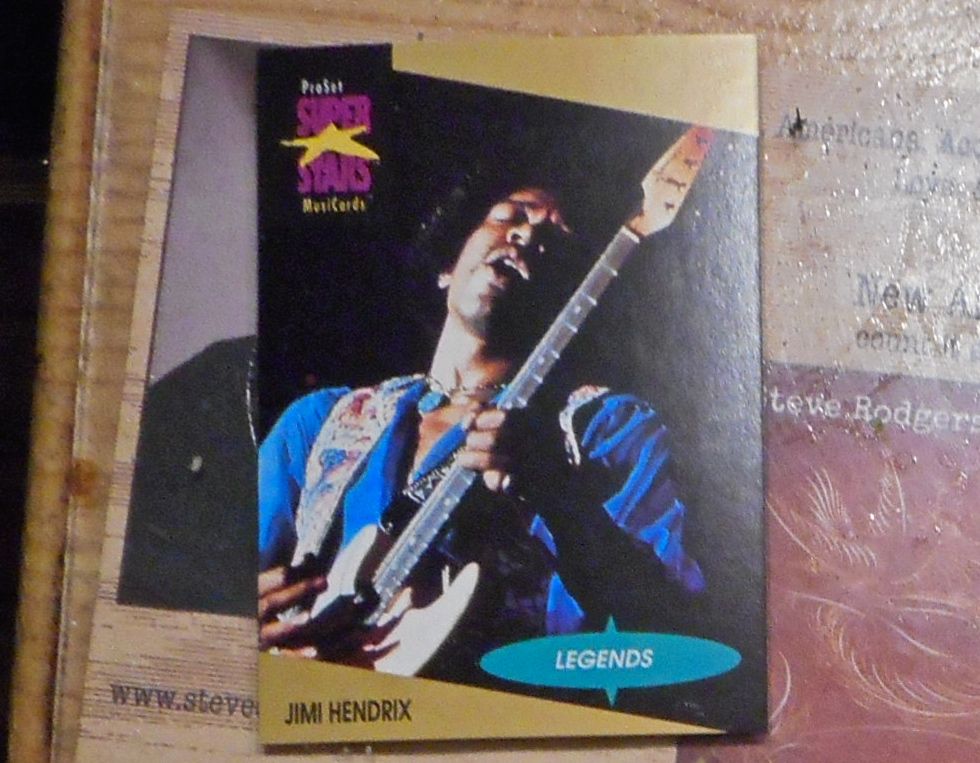
Jimi Hendrix
Phil: My earliest memory of knowing that I wanted to play guitar was seeing something on TV with Jimi Hendrix playing. I don’t even remember how old I was. I was probably 6 or 7, but that is my earliest memory of being like oh, guitar looks cool.
Did your young fandom progress to getting his albums?
Phil: I later became a Jimi Hendrix fan, but (at that age) I was like “Oh, white Strat (Stratocaster) is cool,” and that was my first guitar.
Jimi was the reason I got a Strat.
When it comes to your music, Jimi Hendrix and reggae don’t necessarily immediately go together.
Phil: Yeah, but reggae is such a small part of where I draw my influence from, and I think where most of the band does, too. It’s a piece of it.
I remember when I saw you for the first time I described your sound as “accessible reggae,” because you have so many other genres thrown in there, whatever someone is into, they can get into it.
Phil: Totally.
Bill: It was always a good jumping off point, but it’s not necessarily the destination on anything, so it’s kind of a bedrock piece of things, but it doesn’t have to be where everything is aimed.
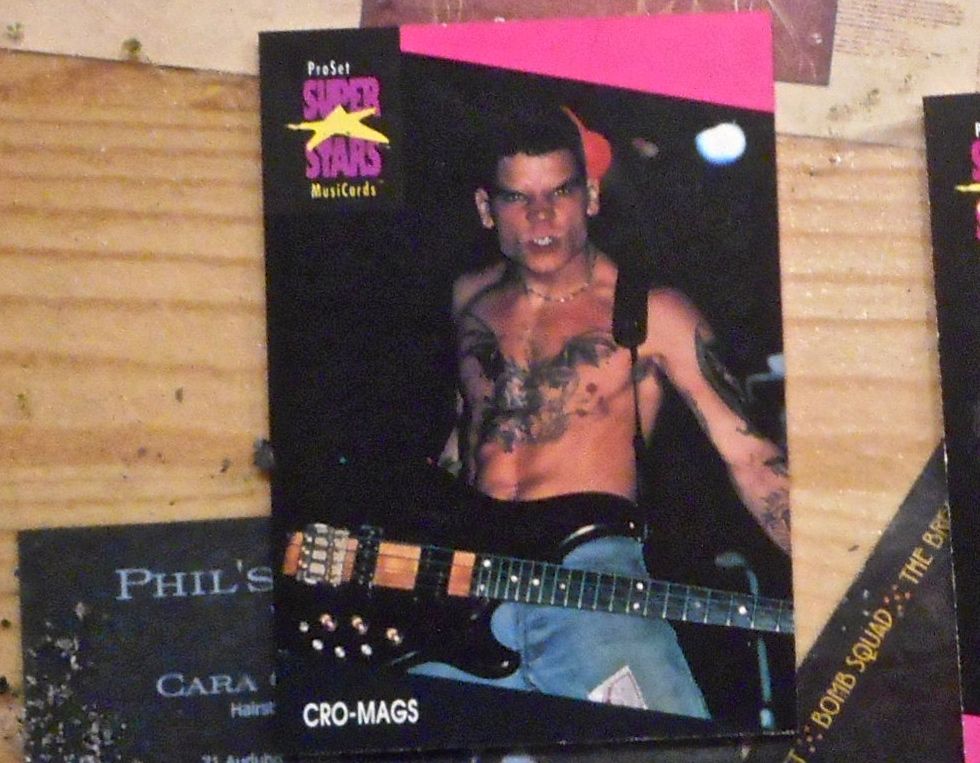
Cro-Mags
Bill: I got the Cro-Mags. This is Harley Flanagan, and they’re talking about The Age of Quarrel, from 1986, being their big album.
I was in a band that was billed with these guys in the ‘90s when I was playing for a while in a hardcore band.
What was the name of the band?
Bill: I don’t even remember which one it was, but it was a bunch of guys in Syracuse, which is obviously known for its hardcore, but I kinda grew up in a world where stuff wasn’t quite as rigidly defined.
Part of my upbringing in the ‘80s was listening to a lot of punk rock, different varieties of early hardcore, British punk, and along with that a lot of reggae, which is part of where the reggae stuff comes from, this big connection between ‘70s punk rock and reggae that a lot of people don’t realize. The guys from the Sex Pistols, and Stiff Little Fingers, and all the British bands, The Clash, were all hugely into reggae, and dub reggae, which was the other rebel music at the time.
It’s kind of also emblematic that everyone here in the band has been in other types of bands, and performed other types of music. There is no one defining genre for any person in this room. Everyone has done a whole bunch of different stuff, and I think it speaks to what the band does that everyone has really big ears in terms of listening to all different type of music.
You mentioned being into multiple rebellious styles of music, and being in a hardcore band. I need a story of rebellion from your life, because right now you look so ready for your 9 to 5.
Bill: You know, I didn’t have a regular 9 to 5 job until I was in my mid-30s.
I worked at an independent record store for the better part of a decade, so I could also be on the road playing, and touring, in what at that time was a third wave ska band. I’ve been in industrial and punk bands, too. All that goes with that.
Tyre: He likes to bust skulls.
I was about to ask, do you roll those sleeves up and there are sleeve tattoos going all the way down?
Bill: It’s funny because I used to live with a guy who owns a tattoo shop in Syracuse, and all of our friends, and all the people we hung out with, were completely covered. I was the one dude who had nothing, and I’m like no, I’m going out the way I came in, man – clean.
That’s a true act of rebellion.
Bill: Because (tattoos are) what everyone’s expecting. He actually said at one point in time, “If you ever want anything, a back piece, anything, come to me, I’ll do it for free. Whatever you want, I’ll do it.” There’s just nothing that I’ve been so into that I was like – I want that for my whole life. I want to die with that.
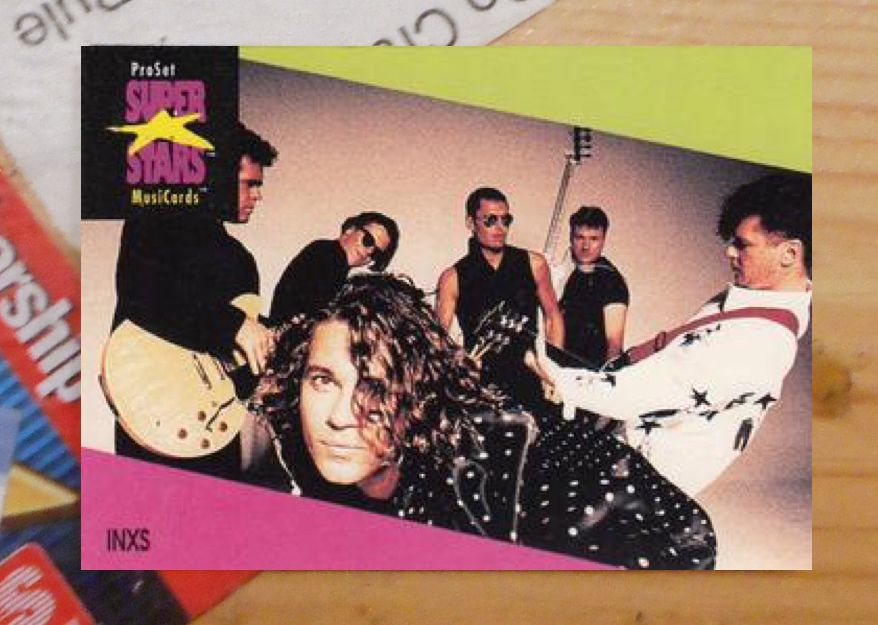
INXS
Brian: I actually saw these guys, it was probably one of my first real shows I can remember seeing, and just being blown away by the video, and the sound. At one point Michael Hutchence jumped through the screen, and you’re like, how did he jump through the screen? I want to jump through the screen!
It was definitely a catalyst for me being like, no matter what you do playing-wise, this is where I’d like to be, and with a group of people who also want to be there. You can see them all having their parts, and all moving as one.
I’ll always remember that as a being a highlight to my (thinking), “OK, the band thing is really cool.” It switched over to being cool from being sorta nerdy.
Were you already in a band at the time?
Brian: I was playing in bands, and stuff, but it was sorta of under the radar because music isn’t as cool when you’re 5, 6, 7 years old.
That’s super young. Most people that age are on the recorder.
Brian: I was lucky enough to have people to play with.
I played sports, and there were a couple other kids on the teams who were also into music, so we all had our instruments. I’d spend weekends at their house just jamming – 14 years old, playing Eagle tunes, and stuff like that. It got it moving, and then to see something like this, you’re like oh dude, I am cool. {laughs}
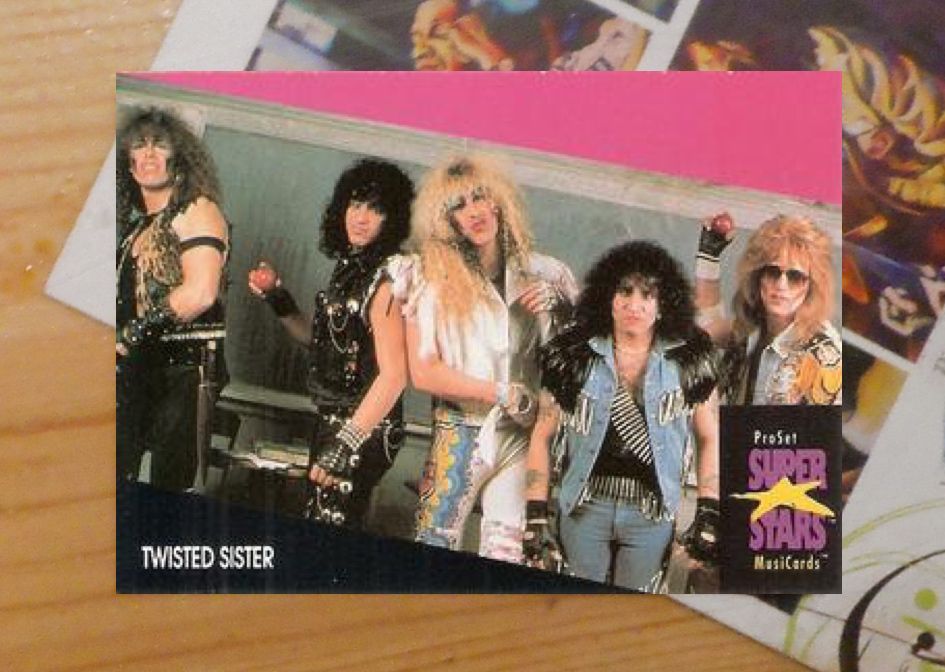
Twisted Sister
Tyre: I picked these dudes because they bring me back to a nostalgic point of a movie that I grew up watching so many times. It reminds me of big leopard print panties, and a snake swallowing a guy’s arm that was holding a rat to feed it … this movie is Road Trip, with Tom Green.
This is what got me into Twisted Sister. (The characters in the movie were) on that little mini bus, and that song comes on – “I Wanna Rock!”
The unorthodox Tom Green to Twisted Sister road.
Tyre: Yeah, and when that one song popped up on that bus it was probably the first time I had ever heard it, and I loved it so much I went and downloaded it just so I could listen to it as much as I possibly could.
Then I was thinking Dee Snider was Stuart from MAD TV. I thought they were the same person. It was like, “This guy’s got a band, and he’s on MAD TV as a comic?” {laughs}
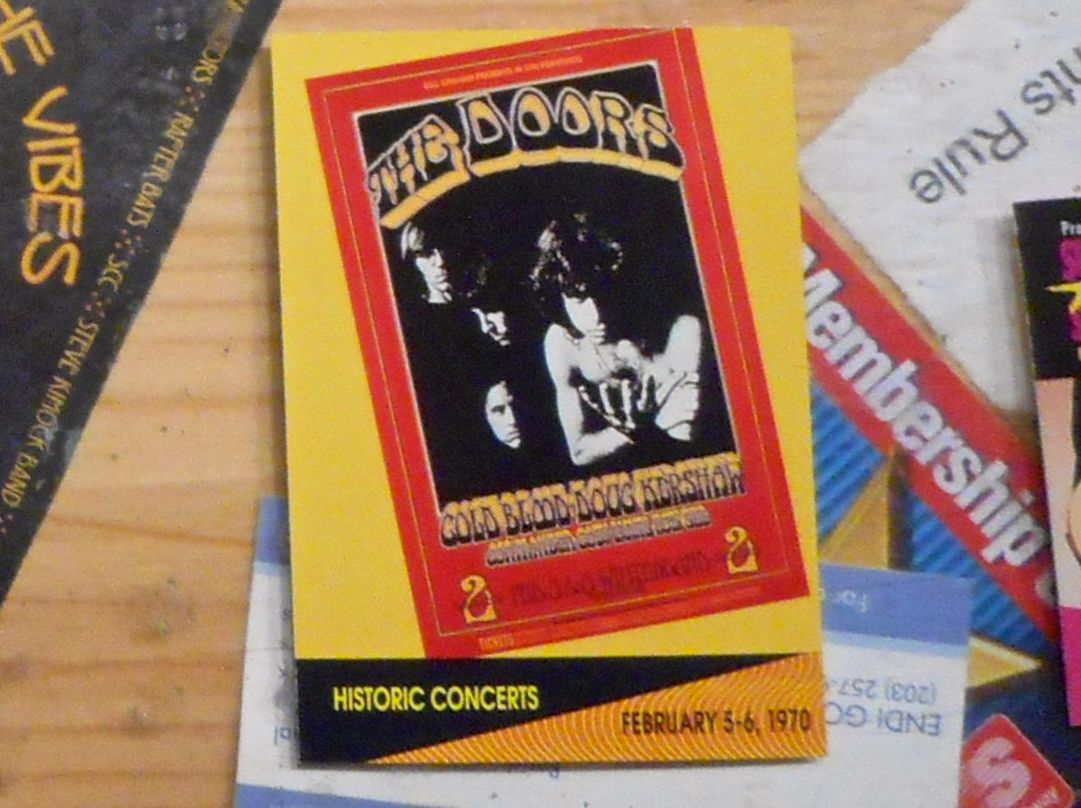
The Doors
Jessica: Honestly, I didn’t grow up listening to The Doors, but Jim Morrison was such a frontman, that’s why I was like, I can relate, in some way … except the fact that I’m still alive, and I’m in my 30s.
He was super emotional, and he was wild on stage, so he could bring you in on that soft level, and then all of a sudden go crazy. I can relate to that, personally, as a performer.
Both Jim Morrison, and the previously mentioned Michael Hutchence, were frontmen who oozed sexuality.
Jessica: Right. I wouldn’t say that I can personally relate to that. I don’t think I ooze sexuality on stage. {laughs}
Tyre: Not to us. {laughs}
Jessica: Maybe I should take lessons …
Bill: Maybe if you had the leather pants.
Everyone: {laughs}
Jessica: If I had leather pants, and I took my shirt off, maybe it might be different. {laughs}
For more Root Shock, check out rootshockmusic.com, and follow them on Facebook, Twitter, and Instagram.

Comments